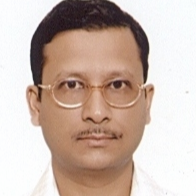International Journal of Intelligent Systems and Applications (IJISA)
IJISA Vol. 4, No. 5, 8 May 2012
Cover page and Table of Contents: PDF (size: 362KB)
An Analysis of the Effect of Communication for Multi-agent Planning in a Grid World Domain
Full Text (PDF, 362KB), PP.8-15
Views: 0 Downloads: 0
Author(s)
Index Terms
Grid world Domain, Communication, Multi-agent system
Abstract
Agent-based technology has generated a lot of attention in recent years because of its promise as a new paradigm for conceptualizing, designing, and implementing software systems. Some problems in real world cannot be handled by a single agent. Multiple agents work together to accomplish some task. Although multi-agent systems (MASs) provide many potential advantages, they also present many difficult challenges. This paper illustrates the importance of communication for planning in a multi-agent setting by considering a grid world domain that consists of obstacles at different locations. This paper provides a theoretical framework that is validated by the experimental results. Performance analysis with respect to plan size and execution time is also reported.
Cite This Paper
Satyendra Singh Chouhan, Rajdeep Niyogi, "An Analysis of the Effect of Communication for Multi-agent Planning in a Grid World Domain", International Journal of Intelligent Systems and Applications(IJISA), vol.4, no.5, pp.8-15, 2012. DOI:10.5815/ijisa.2012.05.02
Reference
[1]Zhiyong Sui, Lixin Huang, "Study on an E-Commerce System based on Multi-Agent Technology," International Symposium on Electronic Commerce and Security, pp.714-717, 3-5 Aug. 2008
[2]Hellingrath, B, Bohle, C, van Hueth, J, "A Framework for the Development of Multi-Agent Systems in Supply Chain Management," 42nd Hawaii International Conference on System Sciences, pp.1-9, 5-8 Jan. 2009
[3]Banik, S.C, Watanabe, K, Habib, M.K, Izumi, K, "An emotion-based task sharing approach for a cooperative multi-agent robotic system,". IEEE International Conference on Mechatronics and Automation, pp.77-82, 5-8 Aug. 2008
[4]Pena, L., Ossowski, S., Pena, J.-M., "vBattle: A new framework to simulate medium-scale battles in individual-per individual basis,". IEEE Symposium on Computational Intelligence and Games,pp.61-68, 7-10 Sept. 2009
[5]Ahmad, H.F., “Multi-agent systems: overview of a new paradigm for distributed systems,”7th IEEE International Symposium on High Assurance Systems Engineering, pp. 101- 107, 2002.
[6]N. Vlassis, A Concise Introduction to Multi-agent Systems and Distributed Artificial Intelligence, 1st ed., Morgan & Claypool, 2007.
[7]I. J. Timm, D. Pawlaszczyk, “Large scale multi-agent simulation on the grid,” IEEE International Symposium on Cluster Computing and the Grid, pp. 334-341 2005.
[8]Song Qiang, Lingxia Liu; , "The Implement of Blackboard-Based Multi-agent Intelligent Decision Support System,", Second International Conference on Computer Engineering and Applications, pp.572-575, 19-21 March 2010
[9]Xiaojun Wu, Jinhua Sun, "Study on a KQML-Based Intelligent Multi-agent System," International Conference on Intelligent Computation Technology and Automation, pp.466-469, 11-12 May 2010
[10]Foundation for Intelligent Physical Agents(FIPA). “Fipa2000 agent specification”, http://www.fipa.org.
[11]Yaqiu Liu, Xue Zhang, Qu Wu , "Optimizing KQML for usage in wood drying multi-agent coordination system," Control and Decision Conference, pp.3725-3730, 23-25 May 2011.
[12]M. Brenner, B. Nebel, “Continual planning and acting in dynamic multivalent environments,” Autonomous Agents and Multi-Agent Systems, vol. 19, no. 3, pp. 297-331, 2009.
[13]Abusnaina, A.A.A, Chan Huah Yong, “Cooperative Multi-Agent System for solving Packet World Problem in Grid,” IEEE 9th Malaysia International Conference on Communications, pp.754-758, 15-17 Dec. 2009.
[14]D. Weyns, A. Helleboogh , T. Holvoet, “The Packet-World: A Test Bed for Investigating Situated Multi-Agent Systems, Software Agent-Based Applications, Platforms and Development Kits”, [online], 2005.
